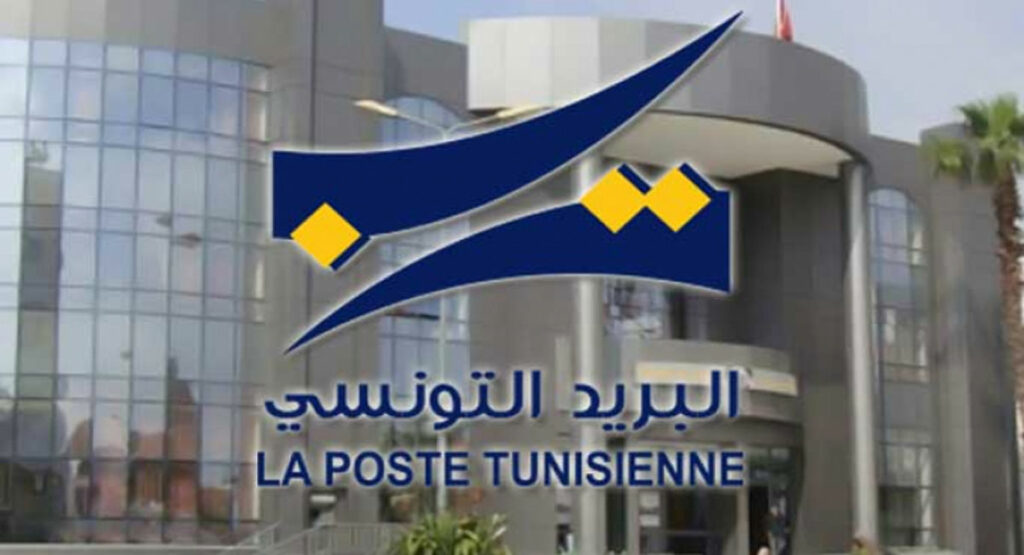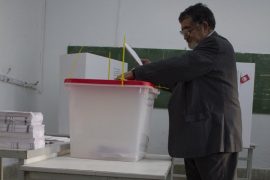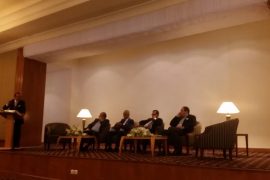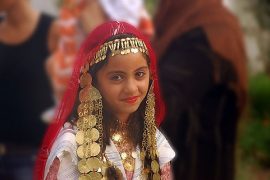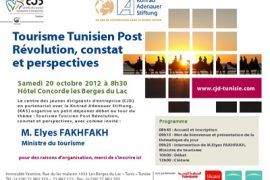The insurance with the Tunisian Post: For more information, simply introduce yourself to the nearest post office to you with your Tunisian passport.
Travel insurance with a travel agency: just introduce you to a travel agency or an insurance agency offering this service and provide your passport, date of departure in trip and the duration of your stay .
Tunisia must investigate attacks by religious extremists.
In multiple incidents, no arrests have been made.
(Tunis, October 15, 2012) – The Tunisian authorities should investigate a series of attacks by religious extremists in the last ten months and bring those responsible to justice, Human Rights Watch said today.
In a letter to the Ministers of Justice and Interior July 11, 2012, Human Rights Watch describes in detail six incidents in which individuals, apparently driven by religious motivations groups attacked people – mostly artists, intellectuals and political activists – because of their ideas or their manner of dressing. Human Rights Watch also received information about another similar case, the August aggression of the organizers of a festival by a radical religious group.
“The failure of Tunisian authorities to investigate these attacks reinforces impunity for religious extremists and can encourage them to be more violent,” said Joe Stork, deputy director of the Middle East and North Africa director at Human Rights Watch .
The letter to the Ministers of Justice and Interior detailing the apparent failure of the authorities to respond to these attacks. Human Rights Watch asked the ministers if the law enforcement and judicial authorities had acted in response to complaints lodged by victims of the attacks and whether suspects had been charged or brought to justice. Human Rights Watch has received no response to this letter.
The victims of these six cases are: Rajab Magri, a drama teacher and activist of civil society, attacked the 14 October 2011, and again on 25 May 2012, in Kef; his nephew Selim Magri, May 7, 2012 in Kef; Jaouhar Ben Mbarek, an activist and coordinator of the social network Doustourna, April 21, 2012 at Souk Al Ahad; Zainab Rezgui, a journalist, on 30 May 2012 in Tunis; and Mohamed Ben Tabib, a documentary filmmaker and professor of philosophy, on 25 May 2012 in Bizerte.
In six cases the victims filed a complaint with police stations immediately after the attacks, identifying the perpetrators in most cases. As far as Human Rights Watch has been able to establish, the police did not arrest any of the attackers nor has it initiated a formal investigation or prosecution against them.
Under international law, the Tunisian authorities have an obligation to investigate those who are assaulted by others, to continue and provide victims with effective remedies.
In the case of the latest attack brought to Human Rights Watch’s attention on August 16, a group of bearded men attacked a festival marking the International Day of Jerusalem in Bizerte, a town 40 km north Tunis, injuring at least three militants.
Khaled Boujemaa, a human rights activist and festival organizer, told Human Rights Watch that on that day he had called the police chief several times, first to inform him of threats from people he identified by their beards and dress as Salafists, Muslims who advocate a return to Islam as they believe it was practiced in the time of prophet Muhammad. These men had ordered the organizers to cancel the festival and were accused of being Shiites, who represent a minority of Muslims in Tunisia.
He called the police again after a large group of bearded men began to tear the pictures and banners displayed for the event. Finally Boujemaa made a third call when sixty attackers started to attack him and other participants in the festival. According to him, the officer assured that the police would take the necessary measures for their safety, but no police officers were sent to protect the festival, and the chief of police watched the attack from a distance without intervening. Boujemaa was seriously injured and taken to hospital.
“The police came to see us in the hospital a few hours later and 21 August we went to the police identify some of the attackers,” said Boujemaa at Human Rights Watch. “Then I saw individuals we identified out of the police station by the back door. Since we have not heard whether the trial will be held, and on what date. ”
These assaults were committed during the last ten months in different parts of the country by people with clothing and a similar appearance, from the accounts of victims. The assailants had violent behavior, they used weapons such as swords, clubs and knives in order to prevent festivals and celebrations, and they had people beaten, apparently because of their ideas, the way they dress or their activities.
“The apparent lack of judicial investigations – let alone prosecutions – can only increase the sense of vulnerability of those that attract the hatred of these gangs,” said Joe Stork.
To read more of Human Rights Watch reported on Tunisia, please follow the link:
http://www.hrw.org/fr/middle-eastn-africa/tunisia
For further information please contact:
In Tunis, Amna Guellali (English, French, Arabic): +216-24-85-324 (Mobile); ou guellaa@hrw.org
In Copenhagen, Joe Stork (English): +1-202-299-4925 (Mobile); ou storkj@hrw.org
{mainvote}

